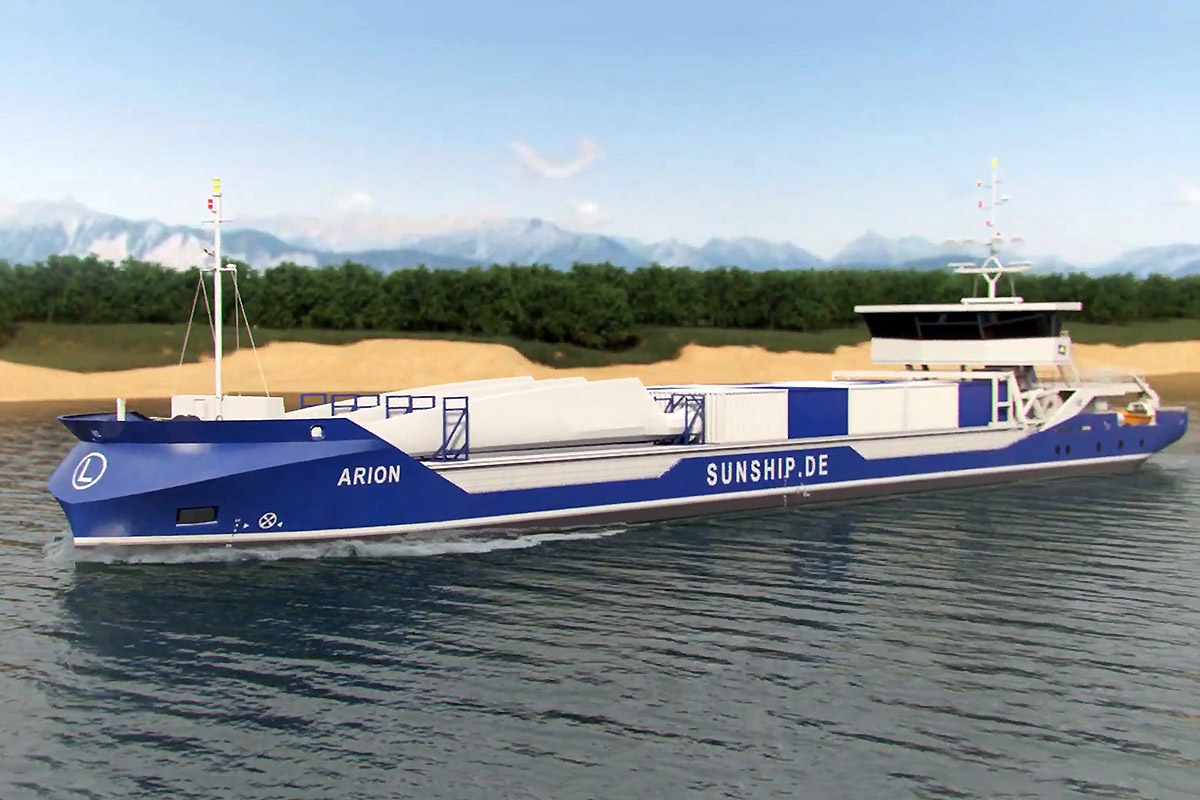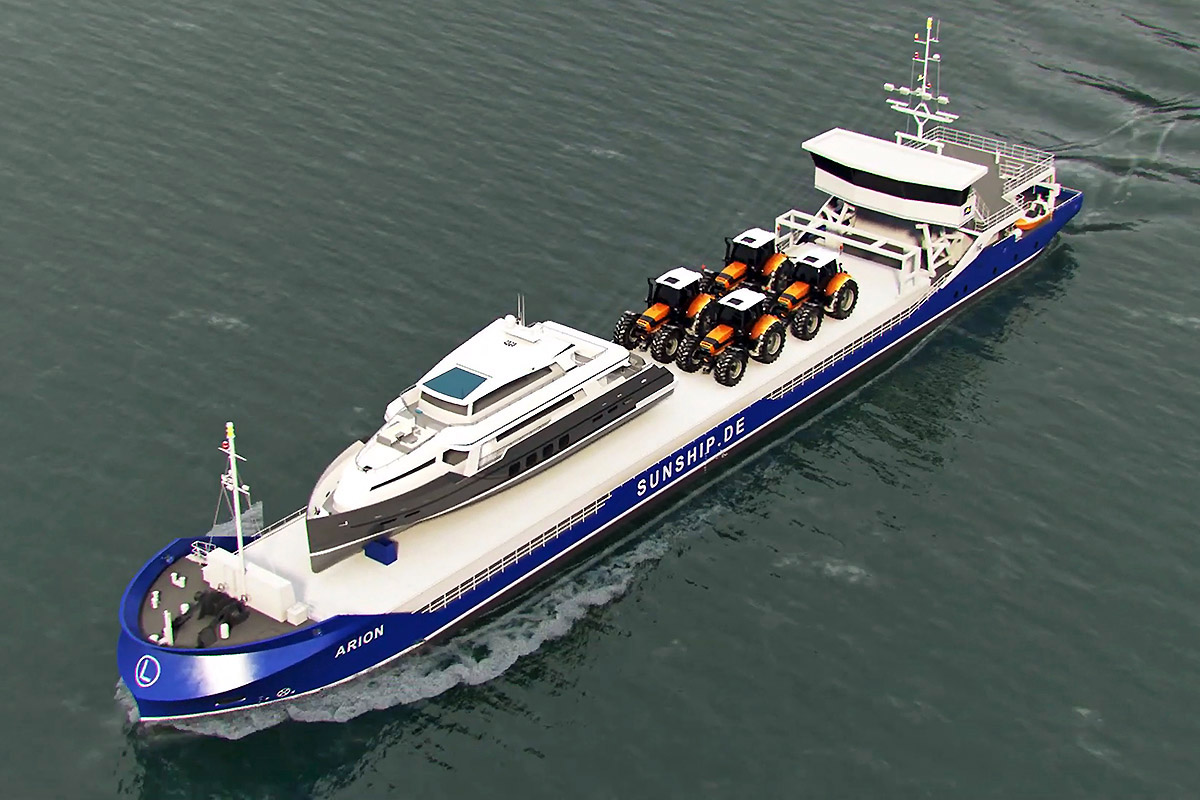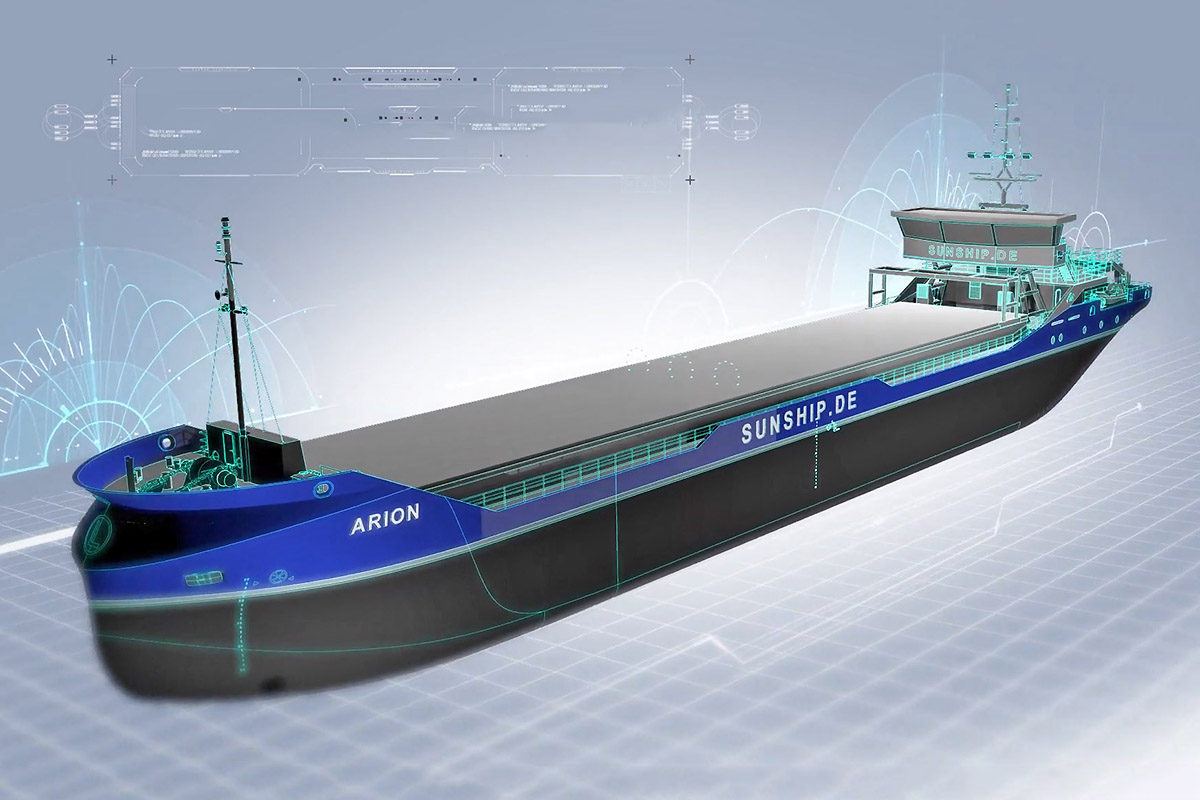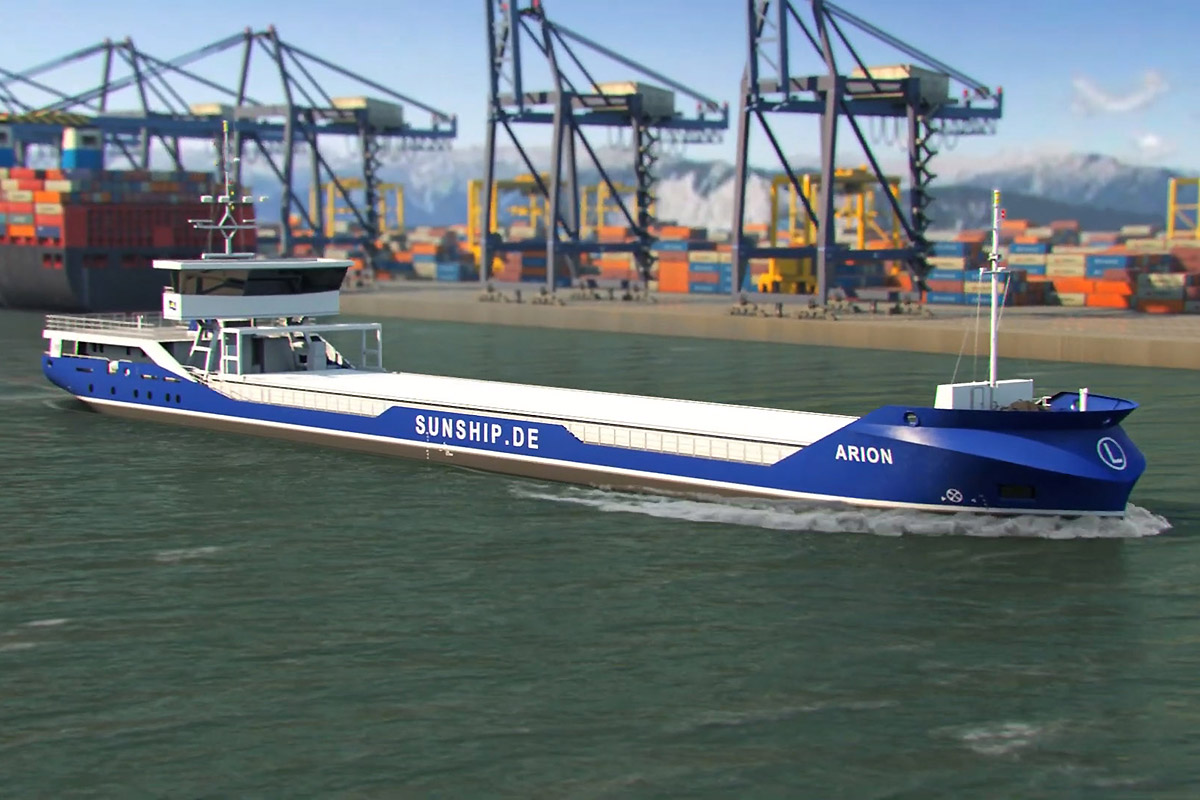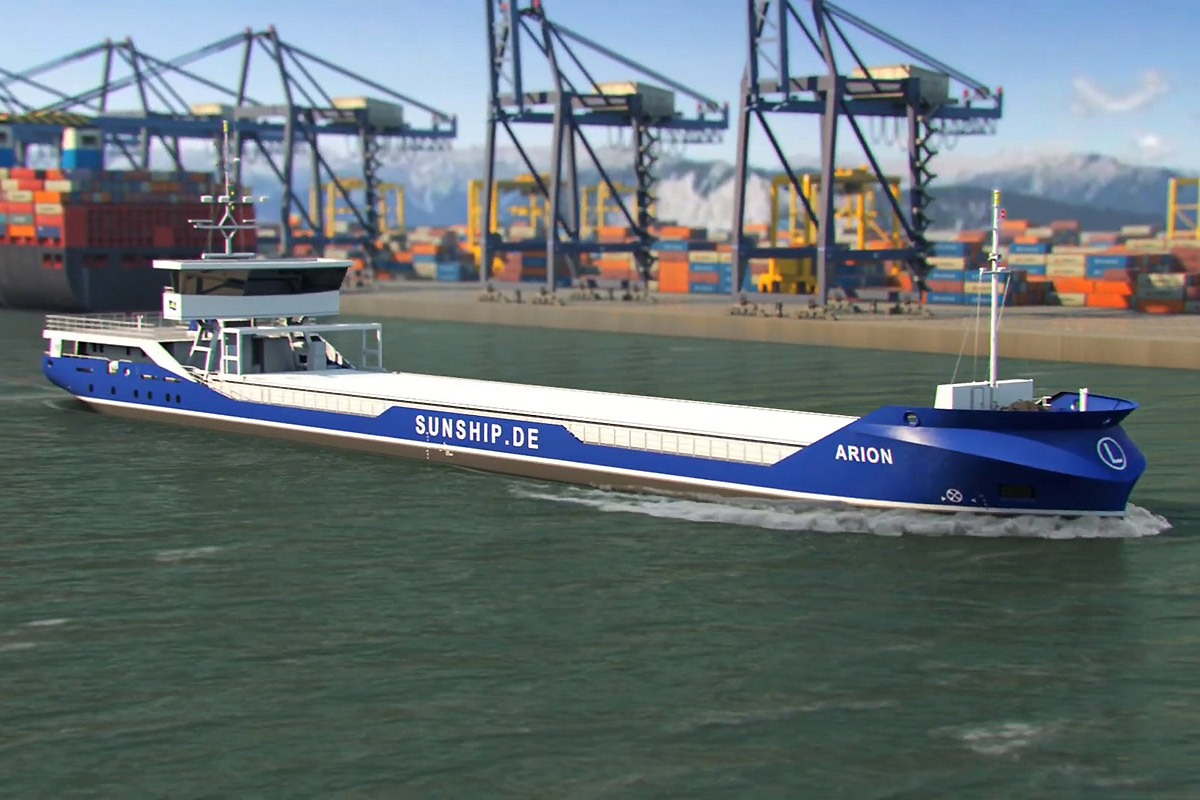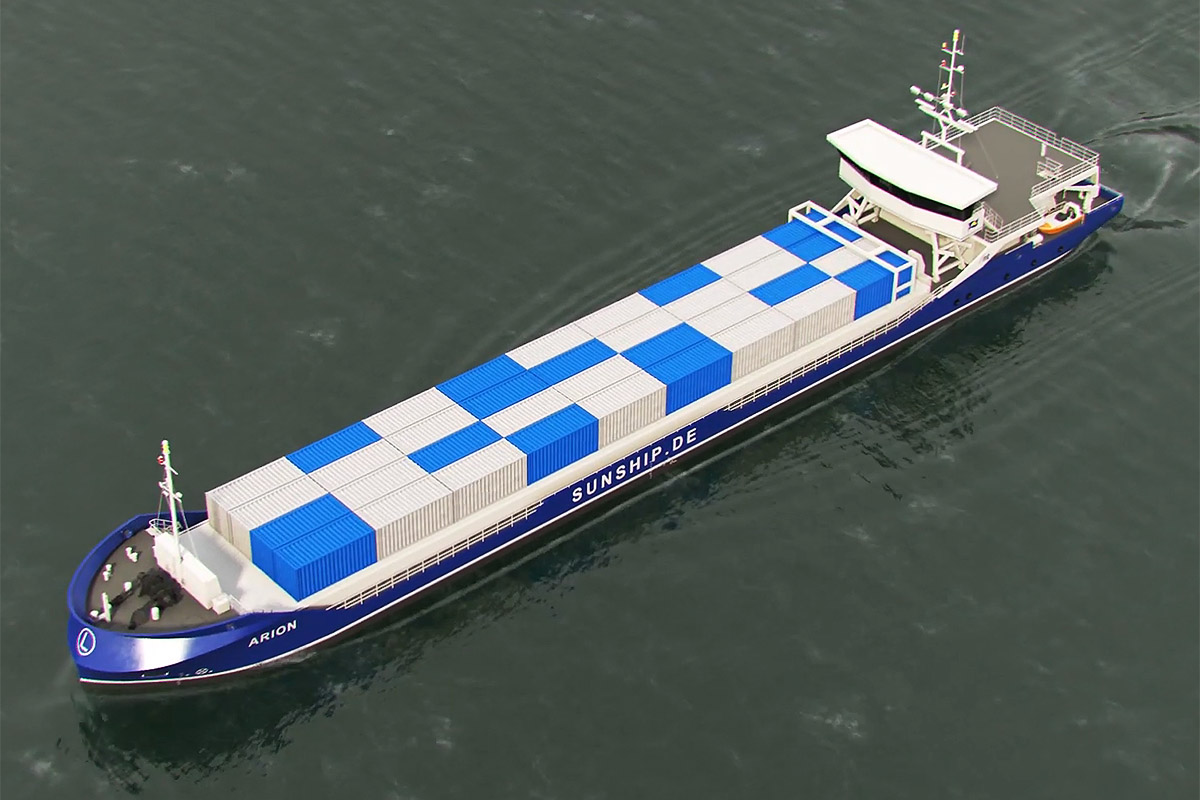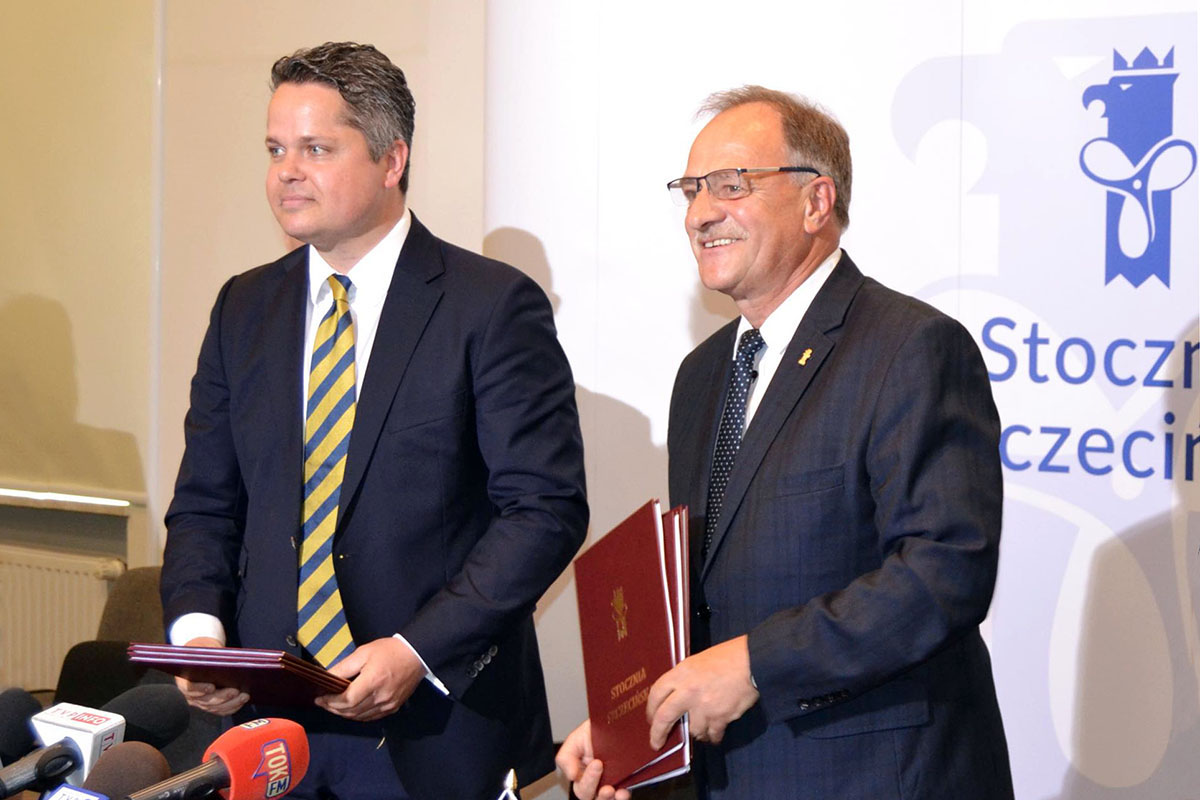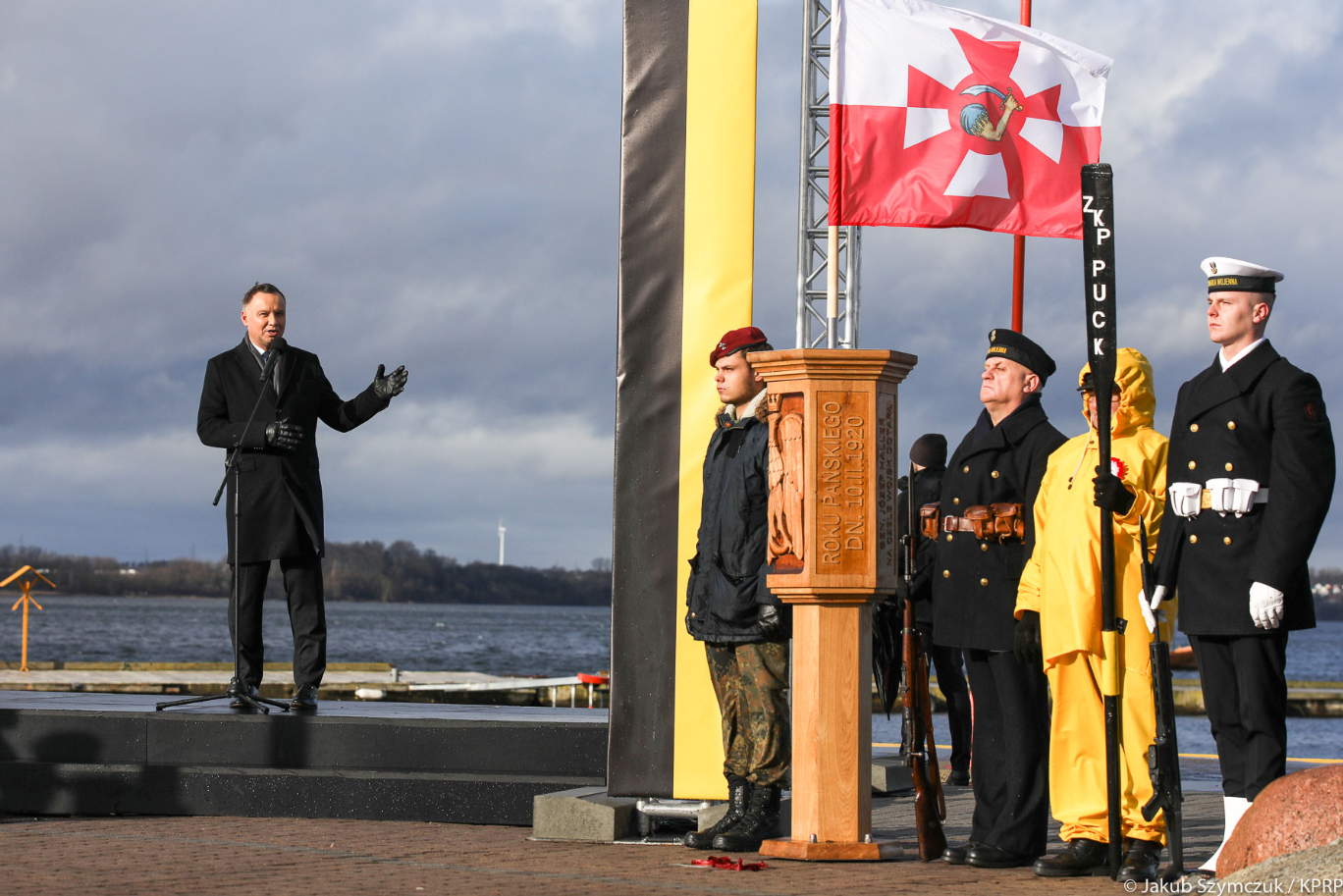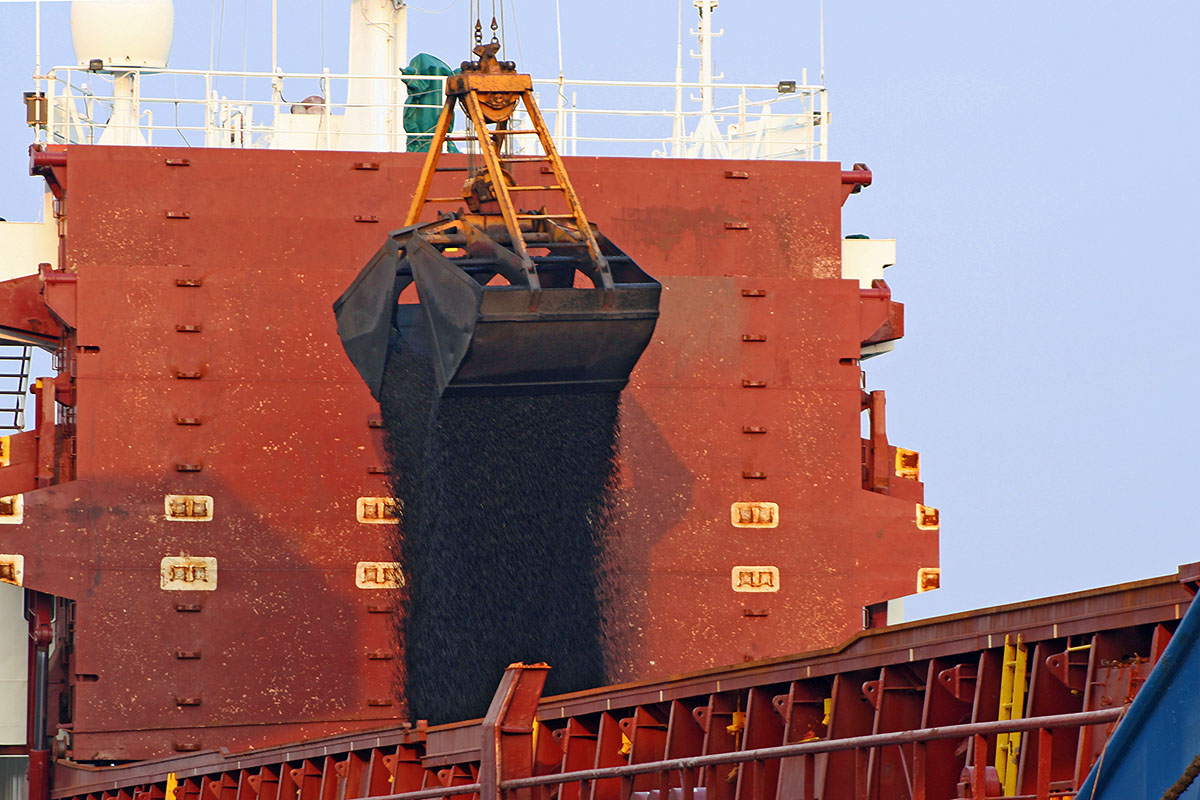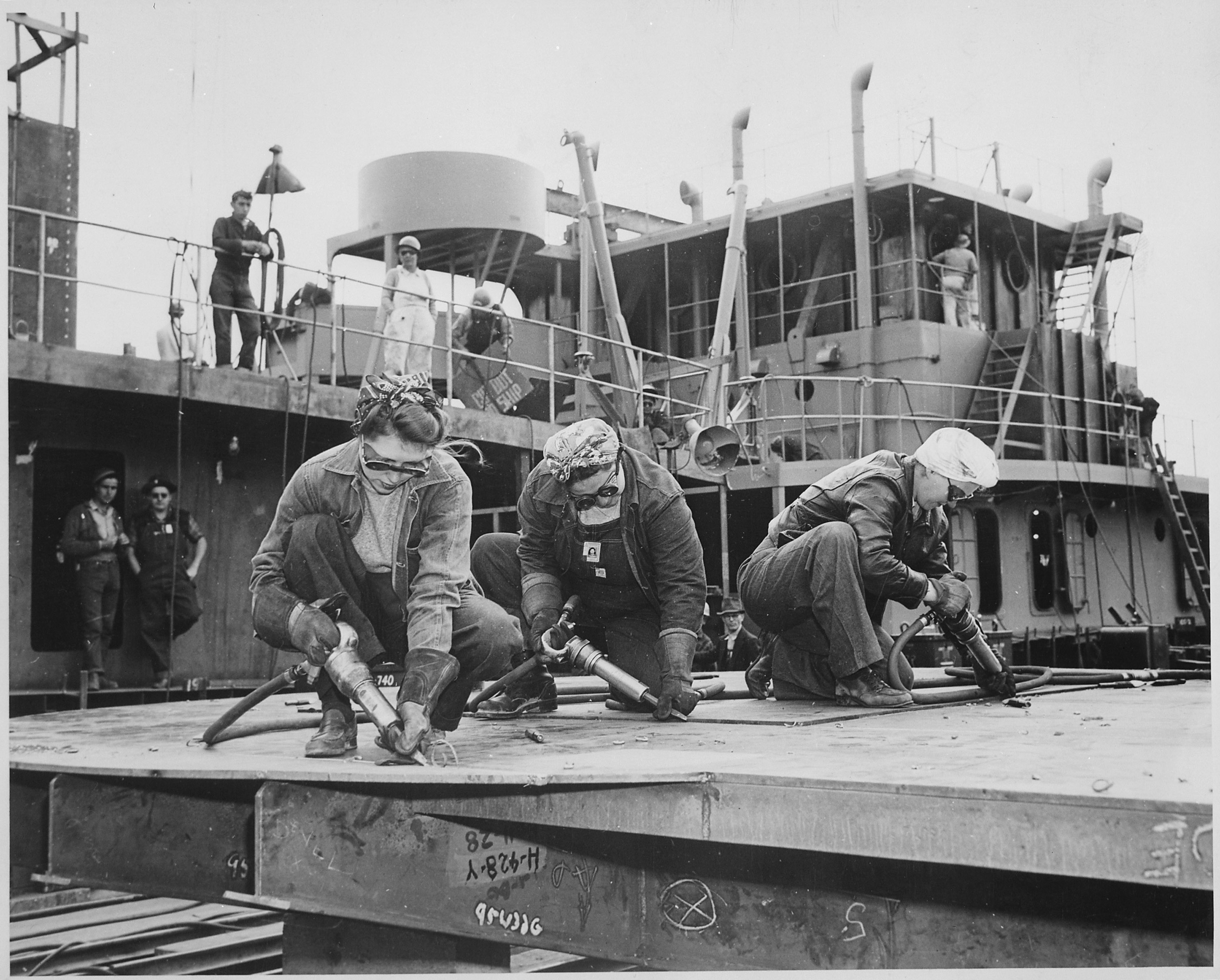Crowdfunding coach from Szczecin Shipyard
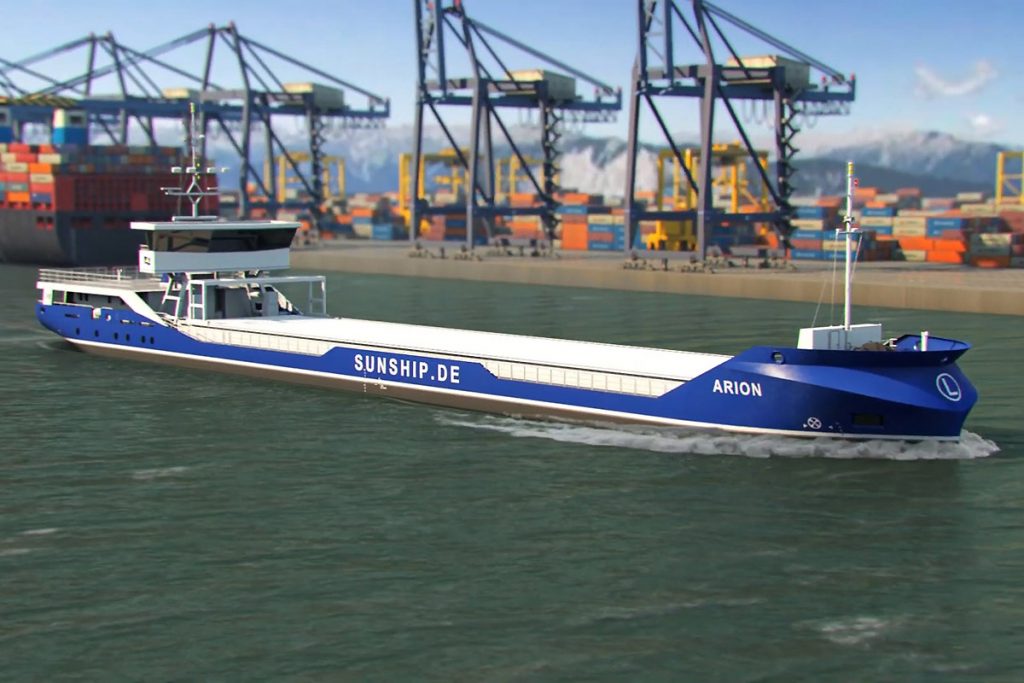
Crowdfunding, i.e. community financing, is to cover at least part of the costs of building new ships of the German shipowner and operator. The shares in the first semi-autonomous ship to be built by SSN will be available to small investors.
However, there is no, not even unofficial, convincing information confirming the commencement of construction of even the first of the two ships for which the contract was signed in Szczecin just over a year ago.
For the time being, subscriptions for securities related to this investment, conducted since last year by a German company – New Shore Invest (New Shore Betriebsgesellschaft mbH), describing itself as their agent, are in progress. The degree of interest in the investment to date is unknown.
It is also unknown whether any specific construction preparation work (e.g. technical and working design, orders or purchases of materials and equipment, etc.) is in progress.
The yard itself, e.g. on its website, does not declare key dates of the technological process, such as the first sheet metal cutting. However, in reports from the signing of contracts for the construction of two ships with the German shipowner Lauterjung Shipmanagement GMBH, which took place in the presence of the media, on 24 May last year at the headquarters of the Szczecin Shipyard at Antosiewicza 1, the local media in Szczecin ambiguously reported: some that the first ship “is to be ready” in March 2020, others that then its launching is to take place, and “at the latest three months later” the second one is to be launched.
The German company is organising the subscription of shares. On its website it praises the investment.
The shipping company Lauterjung “plans to develop a modern, flexible fleet in the coming years; two of its ships have already been contracted out and have pre-emptive rights for the next series.
The issuer of the securities relating to the Arion is the shipping company M. Lauterjung GmbH & Co. KG Eurocoaster I. Private, small investors can participate in the Eurocoaster project through participation certificates arranged by New Shore Invest, through which they participate in the profits from the operation of the Arion.
The minimum investment amount is EUR 1,000 and the maximum is EUR 10,000 per investor.
Period of validity of the Arion share certificates (Eurocoaster project) is six years.
The expected rate of return on the investment is up to 7 % per annum.
The return on investment is not guaranteed and returns may vary according to Arion’s economic success.
The subscribers openly admit that if the profits generated by the vessel are lower than expected, the rate of return for investors will also be lower. In addition, there is a risk of partial or even total loss of the amount paid by the investor.
Behind the crowdfunding project are: owner Hanno Tamminga, Master of Science in Shipping, Trade and Finance – as he presents himself on the New Shore Invest website, with over 16 years of professional experience from London, Tokyo, Hamburg and Singapore and Dr. Richard Heuser, a lawyer specializing in banking law and capital markets, a graduate of law studies in Bayreuth and Cologne and economic studies at the University of Bayreuth.
“It will start with a ship named Arion”
reads the German financing organiser’s website, which also informs that “the construction of the ship is to start at the beginning of 2019 in the renowned Szczecin Shipyard. Launching is expected at the beginning of 2020, and commissioning is expected in the middle of the same year (the second quarter of 2020 is referred to elsewhere on the New Shore Invest website).
Although an efficient shipyard, with regular production in progress, can build such a small and not too complicated ship even in a shorter time, the Szczecin Shipyard, as a contractor of contracts for shipbuilding “from start to finish”, is not so at present. It is still in the phase of start-up, organization and “reconstruction” of full production and technological capacity after the devastation caused by the forced closure in 2009 and all its consequences.
This means that production of the first of the ships ordered by Lauterjung should indeed have started by the end of the second quarter of next year so that construction could be completed by the date mentioned by New Shore Invest for the handover of the coast by the end of the second quarter of next year.
Meanwhile, all the signs in the sky and on the ground, or rather the lack of any specific signals, e.g. about the first cutting of metal sheets, makes it possible to doubt whether the contract will actually start.
What is more, it is not even certain whether the contract has become legally binding.
When we talked to Andrzej Strzeboński, President of the Management Board of SSN at the 6th International Maritime Congress in Szczecin in mid-June 2018, he expressed his conviction that the contract with the Lauterjung shipowner would come into force by October of that year. So far, however, there is no official information about the validity of the contract. We have not reached such an unofficial destination either.
The ship ordered by Lauterjung in the Szczecin Shipyard does not yet record the ship base of the existing world fleet and ships in the shipyard orders of IHS Sea-web.
We have recently received answers from SSN, sent by Izabella Maruszczak, a strategy and communication specialist, to our questions concerning, inter alia, the fact and timing of the contract’s validation, the production events related to the first of the two contracted vessels (such as the first cut of steel sheets or the placement of keel) and the expected date of handover of the two vessels by the yard.
We learned that the ‘issues raised’ were [in our question] “are subject to the Company’s trade secrets and as such are not subject to comments or information addressed to the media. Szczecin Shipyard answered at least that much.
We had no success in trying to learn something from the shipowner Reederei M. Lauterjung GmbH & Co. KG, as well as the expected operator (charterer) of the vessel, Sunship Schiffahrtskontor KG (both companies belong to the Reederei M. Lauterjung Shipping Group).
At least three times, at intervals of several weeks, we sent our inquiries in parallel via three different channels, including whether the contract had already come into effect and the expected start dates for the construction and delivery of the contracted ships, to New Shore Invest and directly to Hanno Tamming, managing partner of New Shore Invest. All our attempts at contact were left unanswered.
Arion offers investors the opportunity to invest in ships with a return of up to 7 percent. New Shore Invest argues that the vessel itself and the investment project have the characteristics that make the operation of Arion “particularly economical and profitable”.
According to the financing organiser, they are among them:
- a modern, innovative design concept for an economical (economical) vessel and high-quality technical equipment;
- modern, hydrodynamically refined, innovative hull shape, designed to deliver fuel savings of up to five percent in comparison with ships previously known;
- innovative on-board computerised technology to assist the shipowner’s land-based technical staff in monitoring the ship’s operation and the crew in controlling and monitoring equipment and systems”, which in turn will contribute to “particularly efficient use of energy”;
- the vessel is to be built as what is termed ‘semiautonom ready’; the computer is to read and analyse data related to maritime traffic and thus improve the safety of the vessel; in addition, the shipowner will have a wide range of possibilities to monitor the operational performance of the vessel in transit at sea; however, since both the technology and the legislation related to semi-autonomous ship management are still at an early stage of development, so that Arion is to be manned with a full crew, we read in the information for potential investors from the agent organising the subscription of securities.
- a new construction project in the shipping market segment, which is currently dominated by high-middle age ships (and therefore soon to be replaced by new ones);
- a segment (‘niche’ of vessel type and size) with upward market forecasts;
- a long-term charter with a ‘European market leader’ for the vessel;
- an experienced mid-market operator – annual interest payments;
- fixed-term investment with a fixed term;
- Participation in securities investments.
The model project for new ships to be built in Szczecin Shipyard is the proven Eurocoaster with a capacity of 2460 tons. Several vessels of this type are operated by Sunship Schiffahrtskontor KG and MLB M. Lauterjung Befrachtung GmbH & Co. KG have been operating for 18 years.
Arion, which offers a significantly higher load capacity than Eurocoaster of 3600 tons, is to be its development and improvement project.
The 87.95 m and 12.90 m long vessel is to be very versatile and flexible on the market. It will be able to carry bulk cargoes such as grain and fertilizers, as well as general cargoes and semi-mass cargoes (breakbulk) and steel in various forms, as well as containers and investment cargoes, which means heavy and bulky objects.
Conceptual and initial design of the ship, marked with KB 025 symbol, was developed in cooperation with shipping offices of design and consulting offices KABE from Germany and Nelton Sp. z o.o. from Poland.
The vessel is to be 84.95 m long between verticals, 12.90 m wide and 6.50 m high. It is to have two movable “grain” bulkheads, which can be placed in eight different positions. The Coaster is to take place for 36 TEU on board and 70 in the cargo hold (total capacity of containers is to be 106 TEU). The hold is to be 60,00 × 10,30 × 7,00 m. The main propulsion power KB 025 is to be 1600 kW.
The modern engine room is to enable the unit to reach a maximum speed of 12 knots, while the average economic speed at which the fuel consumption (diesel) is to reach only 4.5 tons per day is 10 knots.
According to the promoters of the investment, the existing typical ships with the same fuel consumption can carry about 1000 tons of less cargo in their holds. The new project is to provide a competitive advantage on the market and, at the same time, a greater capacity of the vessel.
Apart from an economical propulsion system, the environmental protection will be served, among others, by a ballast water treatment system.
The flexible, crowdfunding Kümo (German: Kümo. Küstenmotorschiff – a motorised coastal shipping vessel, or coaster), is to develop a niche with the greatest potential – convince the organizers of investment financing.
In recent years, very few new multipurpose vessels in the range of 2500 to 5000 tonnes have appeared on the market. In addition, as of the summer of 2018, there were only 17 such ships for European shipowners in shipbuilding orders. With a world fleet of 1,883 ships of this size category, new constructions accounted for just over one percent. The average age of the existing fleet of European shipowners in this segment was already 23.5 years at the time, while 42 per cent of the total fleet was older than 25 years and 406 of these ships were older than 30 years. Therefore, we should expect increased activity in the scrapping of this group of ships – convinces the investment promoters.
The demand for goods transported by tankers (the so-called Kümos) on short, north European routes is growing. These include wood products, wind turbine components, grain, fodder and fertilisers, building materials, cement and others.
Arion will benefit from this growing demand and will be exploited on lucrative short sea shipping routes within Europe, but also in North Africa and the Canary Islands. The vessel can also use smaller ports with an available draught of up to four metres. As equipped with a retractable wheelhouse, it will also be able to sail on the Rhine to Duisburg, the largest inland port in Europe and other major rivers and canals. It is a typical river-sea vessel.
The market outlook is therefore very positive.
Due to the excellent ‘marketability’ and ‘marketability’, as the subscription organisers claim. (marketability) the vessel was chartered for a period of three years by a leading European player in this shipping segment, even before construction started (which is not uncommon in shipping, and shows that the operator is convinced that the investment is correct).
The vessel will generate revenue from the very beginning – making the ownership of the vessel a solid investment with attractive possibilities of return, convinces the organizers of financing. This also applies to the potential further expansion of the fleet by the same issuer, in the same business model and the next, twin ships from Szczecin Shipyard.
The subscription organisers, on the one hand, argue that the investment is expected to be profitable, but on the other hand, they stipulate that the acquisition of the certificates of participation entails potentially significant risks and may lead to a total loss of the capital invested. The expected rate of return on the investment is not guaranteed and may be lower. It is an entrepreneurial investment in which the future development of the situation, market conditions, etc. is not predictable, and can only be included in the forecast.
The Issuing Party and the organizers of the subscription support themselves, among others, with forecasts from the market report: “Fleet Analysis for Multipurpose Freighters of the Class 2.500-5.00 dwt” published by ISL (Institute of Shipping Economics and Logistics) in Bremen in October 2018.
Questions and answers regarding the issuance of certificates of participation in the Eurocoaster / Arion project
included information that the first of the ships ordered has already been provided with employment – it was chartered by a “leading European charterer” at a charter rate defined as “above-average” for a period of three years after the completion of the ship’s construction. According to current forecasts, New Shore argues, the charter revenues will cover the expected profits for investors in the first three years of operation.
From the fourth year after the transfer of the vessel, i.e. at the end of the first three-year charter contract, the charterer has the option to extend the charter at a slightly increased rate. However, the development of the shipping market is unpredictable, which means that the achievable total charter rates may be reduced.
In this case, the charterer may not use the option to charter vessels for a further period and the vessel will have to be chartered to another bidder or sold.
The organisers of the subscription or the agents of the securities covered by the subscription explain secretly to potential investors what will happen in the event of the bankruptcy of the yard. In such a case, the Refund Guarantees, regulated by the relevant clauses in the shipbuilding contract, apply. According to these, the bank reimburses the issuer (the shipowner). However, there is a legal and procedural risk in enforcing the guarantee (e.g. in connection with a dispute with the yard) which may cause delays in payments by the guarantor or even the absence of such payments.
On the New Shore Betriebsgesellschaft mbH website we also read that in the event of a delay in the delivery of the ship, the shipyard pays the issuer contractual penalties for each day. From the 150th day of the delay the issuer has the right to terminate (cancel) the contract. In this case, the shipyard is obliged to return all advance payments, including interest, to the issuer (i.e. the ordering shipowner).
The Internet social financing project is addressed to the new generation of investors who accept it with all the benefits of the inventory. In order to break with the bad image of the shipping industry in the eyes of small investors from the past, Hanno Tamminga declares to present it to potential investors with full transparency.
Tamminga believes that shipping must be sold to German retail investors as what it is – a risky investment.
As Tamminga says, quoted by TradeWinds, this is particularly important in Germany, where the shipping industry has been censored by retail investors until the great financial crisis. As a result, it slowed down world trade, resulting in an oversupply of tonnage and a shipping crisis, including the troubles of German shipowners or those who were arranging financing for themselves in Germany. And it was largely about what was called the ‘dentist fleet’.
A whole host of small investors, mainly from the middle class (hence the term ‘dental fleet’), held shares in shipping companies created separately for each ship. This was the KG (Kommanditgesellschaft) system,
On the one hand, the power of German shipping was largely built on it – shipowners and operators grew stronger by making money from the exploitation of ships “funded” by small investors. On the other hand, it meant “soul bang, no hell” in the worst selling practices to retail investors. This has led to a situation where older investors have lost their savings through investments in shipping. The German KG market was a market worth billions of dollars, which disappeared from the day to day when the crisis came.
The older generation in Germany cannot sell their shares in ships.
This is hindered by the new legal restrictions that emerged after the collapse of the KG market and the memory of the failed investments.
Tamminga is therefore targeting a new generation of well-educated, medium-wealthy investors aged 30 and over who are prepared to invest small amounts in projects despite being aware of the risks involved.
The market research carried out by New shore is said to give hope for a resuscitation of the retail market with a large number of investors ready for economic downturns and even for the loss of invested money.
The retail market can only recover if it is broken down into very small market opening shares,” says Tamminga in a speech given to TradeWinds. “We are not trying to convince people who have lost 100,000 euros in the past to invest in shipping. We are trying to find those who are ready and willing to invest €1,000. – adds.
And it can be done only because the project is digital and on-line.
New Shore Invest offers a digital sales and marketing channel, which is supposed to make it possible again to offer shipping to a mass audience.
In contrast to the time of the KG companies, in which investors bought shares in a limited partnership, the investors of New Shore invest in securities. Under German law, up to EUR 8 million of capital can be raised without a prospectus, which in turn means that the costs are halved compared to the time of the KG system.
Tamminga, who has worked with several German shipping companies and a British shipbroker, does not expect the concept to attract large shipowners with access to large capital markets. Instead, the aim is to focus on the small and medium-sized shipowner segment, which can be given access to small capital markets by New Shore.
PBS

